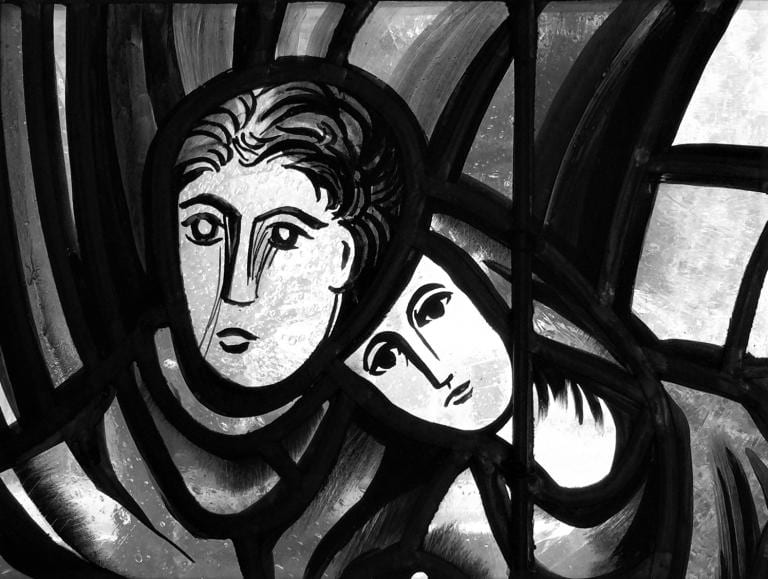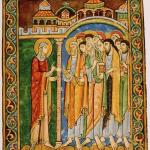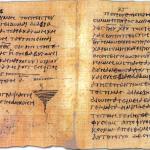Wise Priscilla
 Priscilla and Aquila connected with Paul via their shared occupation of tent-making (Acts 18:1-3). Not only does this couple appear in Luke’s Acts, but they are also mentioned by Paul in Romans. He calls them “co-workers in Christ Jesus,” which was his way of designating ministry colleagues. Paul goes as far as saying they (both of them) “risked their lives for me” such that all Gentile Christians are in their debt (Rom 16:4).
Priscilla and Aquila connected with Paul via their shared occupation of tent-making (Acts 18:1-3). Not only does this couple appear in Luke’s Acts, but they are also mentioned by Paul in Romans. He calls them “co-workers in Christ Jesus,” which was his way of designating ministry colleagues. Paul goes as far as saying they (both of them) “risked their lives for me” such that all Gentile Christians are in their debt (Rom 16:4).
I hear from theologians and pastors from time to time that (1) women are capable of good leadership, but (2) the Bible expressly forbids women teaching men on theological or biblical matters (supposedly based on 1 Tim 2:11-14; we will get to that text later). But Priscilla seems to be a direct example of a woman teaching a man.
Luke refers to the Christian Apollos (an Alexandrian Jew) as a “learned man” who had already studied the Bible in depth (Acts 18:24). One might say that he went to Bible college and seminary. He was passionate about the gospel and “taught about Jesus accurately,” though he had a limited understanding of baptism (18:25). He was an evangelist and missionary, sharing the gospel in the Jewish synagogue.
When Priscilla and Aquila heard him preach, they wanted to teach him more accurately (18:26). We have to stop here and really reckon with how unusual it was at the time for Luke to mention both Priscilla and Aquila. They (both) invited him over and they taught him. So, clearly Priscilla played a crucial role in teaching biblical and theological matters to an already well-trained Christian leader. Some complementarians have refuted this treating it as an irrelevant text for supporting women in ministry teaching roles; here are my counter responses.
Myth 1: Priscilla taught in the home, not the church, so her authority is not ecclesial.
Churches met primarily in homes; here it matters what she does and with whom, not “where” it took place.
Myth 2: She teaches as a private layperson, not a church authority figure.
Paul acknowledges both Priscilla and Aquila as “co-workers,” which tends to mean they were active in what we think of as full-time ministry; they were itinerant Christian leaders, like Paul. Today we might treat them as missionaries. My hunch is Apollos went willingly to receive their teaching precisely because of their ministry reputation.
Myth 3: Priscilla did not have independent authority, but her teaching was legitimized by her husband Aquila.
This myth is an inference, rather than something explicitly stated in Acts. It is true Priscilla did not privately or independently teach Apollos. Still, the most holistic vision for ministry is neither one where men teach alone or women teach alone, but men and women teach the whole people of God together.
Sometimes the matter is raised that Priscilla’s name is given before Aquila on some occasions. This is true, but it is unclear what this signals. Is it her primary role in the teaching? Perhaps. Is it that she had higher social status than Aquila? Possibly. I am not sure. But I am sure that this was a deeply respected ministry couple in the early church. She was not his assistant. She did not just work with women. She was present and active in the early mission of the gospel and we owe both Priscilla and Aquila our deepest gratitude for their faith and faithfulness as missionaries and teachers.
[NB: The featured image is St. Paul instructing Priscilla and Aquila]












